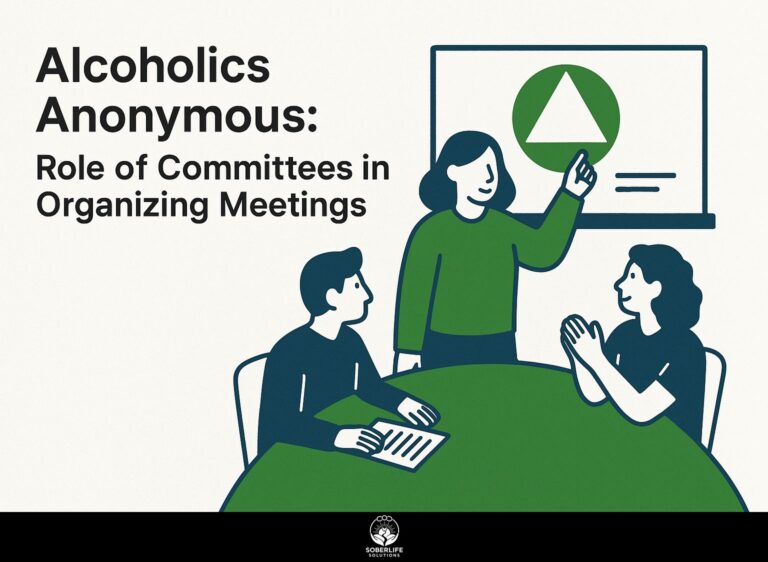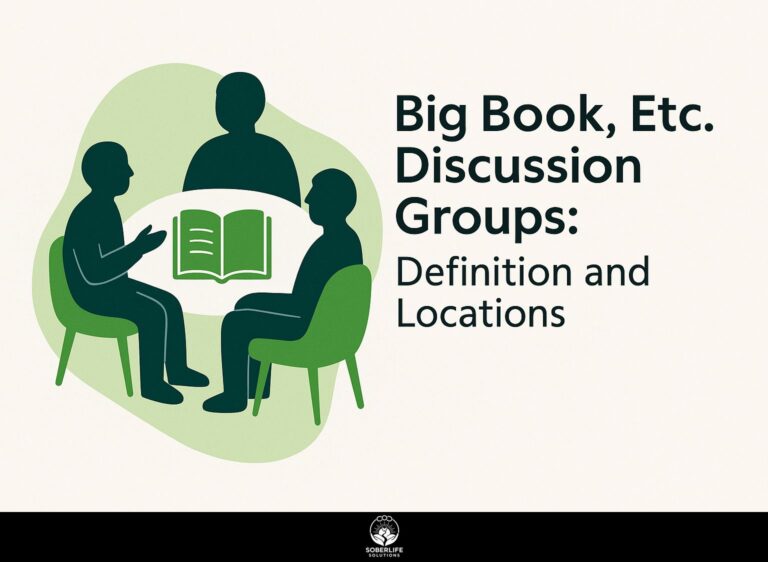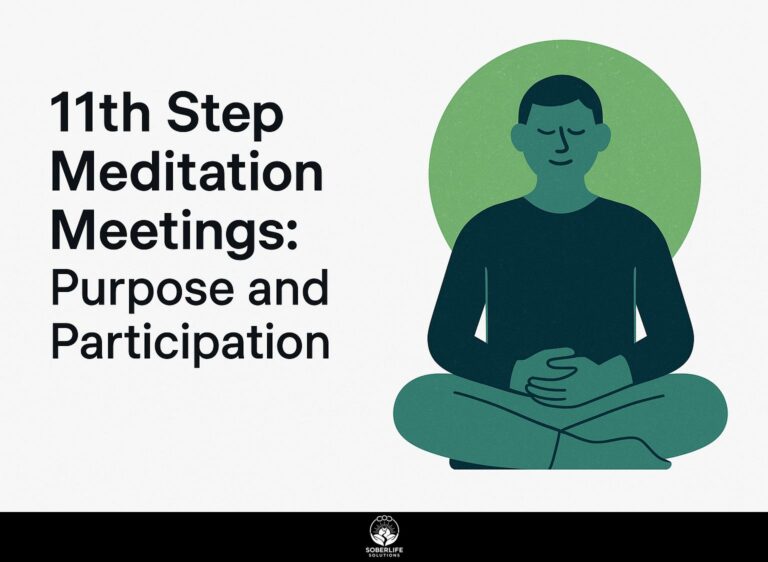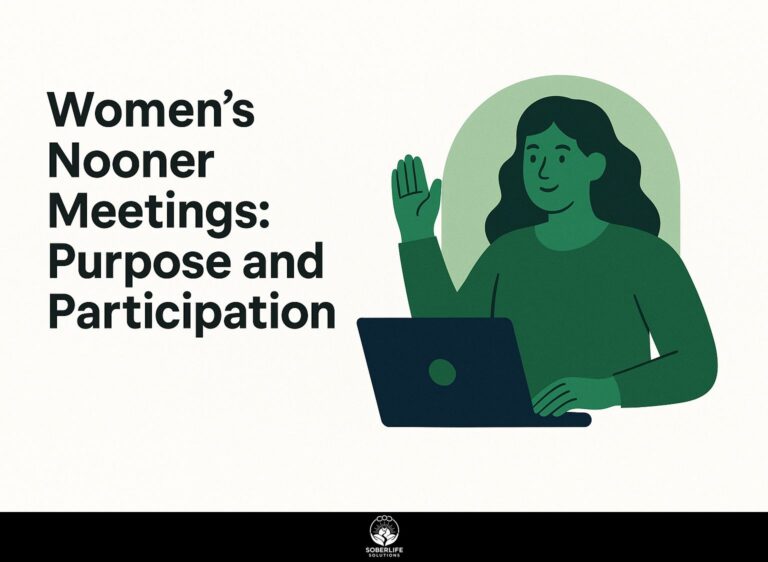12 Steps and Big Book Meetings: Definition and Importance
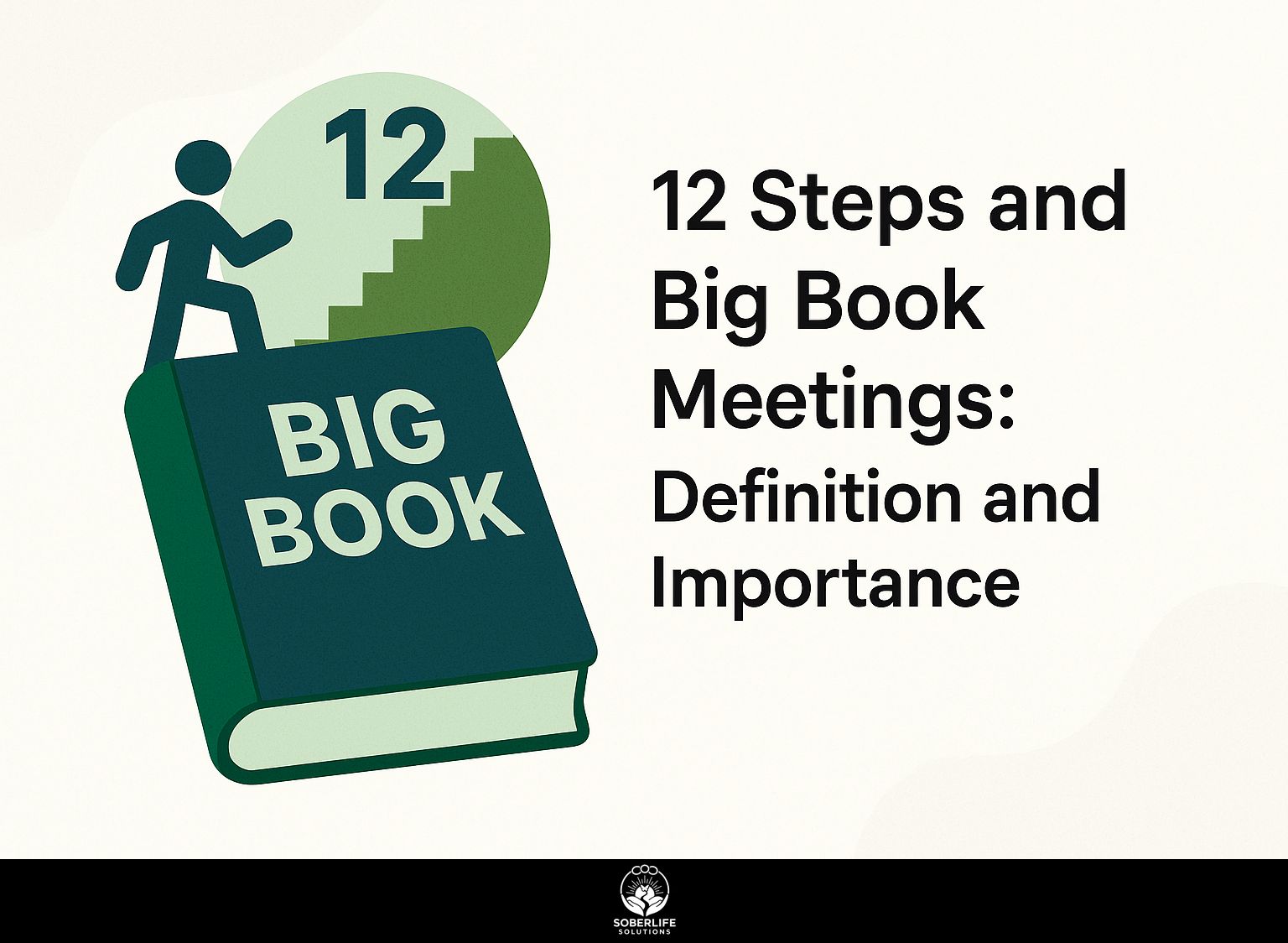
Introduction to 12 Steps and Big Book Meetings
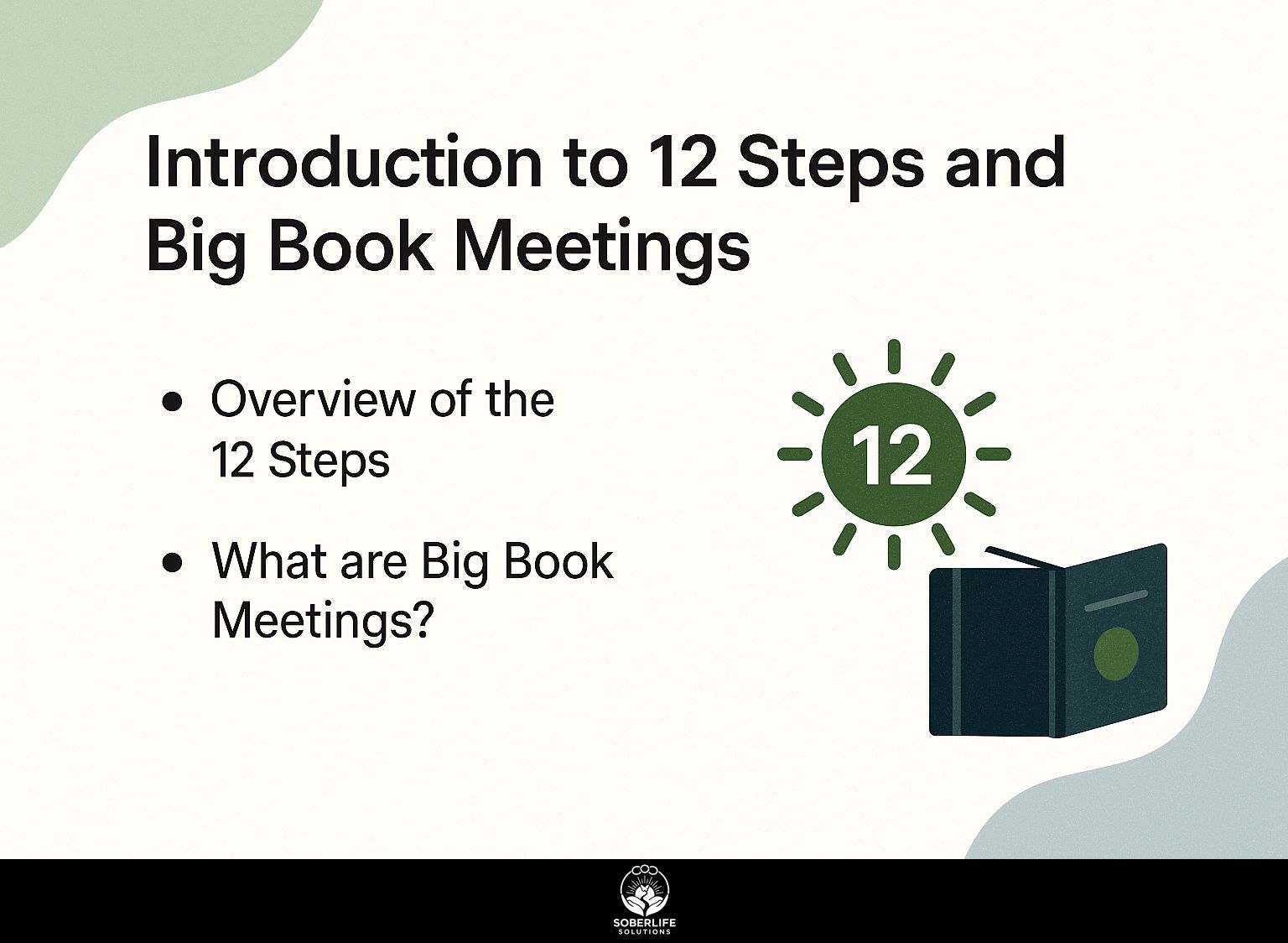
In the process of recovering from alcoholism, the Twelve Steps of Alcoholics Anonymous provide guidance for spiritual renewal and self-improvement. Founded by Bill W, this program emphasizes the importance of self-reflection through a personal inventory and collective support in Big Book meetings. This article explains why these steps and meetings are important. It gives you ideas to improve your recovery process and helps you gain knowledge about this important path.
Key Takeaways:
Overview of the 12 Steps
The Twelve Steps provide a structured approach to recovery, emphasizing self-reflection, accountability, and connection with a higher power.
The process begins with acknowledging powerlessness over addiction and ends with a commitment to helping others who share similar struggles.
Each step includes specific tasks, such as self-assessment and making amends. For example, Step 4 encourages individuals to write down their resentments and fears, allowing them to confront and understand these feelings.
Having a sponsor can improve responsibility and offer direction through the process, giving help during tough times. According to Wikipedia, the Twelve-step program’s structure and supportive network play a crucial role in guiding individuals through recovery. As a hidden gem, exploring [faith-based counseling](https://soberlifesolutions.com/faith-counseling-alcoholism/) can offer additional spiritual support, enhancing the recovery journey for many.
What are Big Book Meetings?
Big Book Meetings center on group readings and talks about the main book of Alcoholics Anonymous. These meetings encourage learning together and shared responsibility.
These meetings typically follow a structured format, starting with a group reading from the Big Book, followed by open discussion among members.
Participants often share their personal experiences related to the text, emphasizing the importance of connecting with others who understand their struggles. Many meetings use particular discussion questions taken from A.A. literature to promote thorough thinking and involvement.
This format reinforces the principles of sobriety and helps build strong connections, creating a supportive atmosphere where members can both receive and offer encouragement. If interested, you might find it helpful to learn about different A.A. meeting formats, such as open and closed meetings, to better understand the structure.
Historical Context
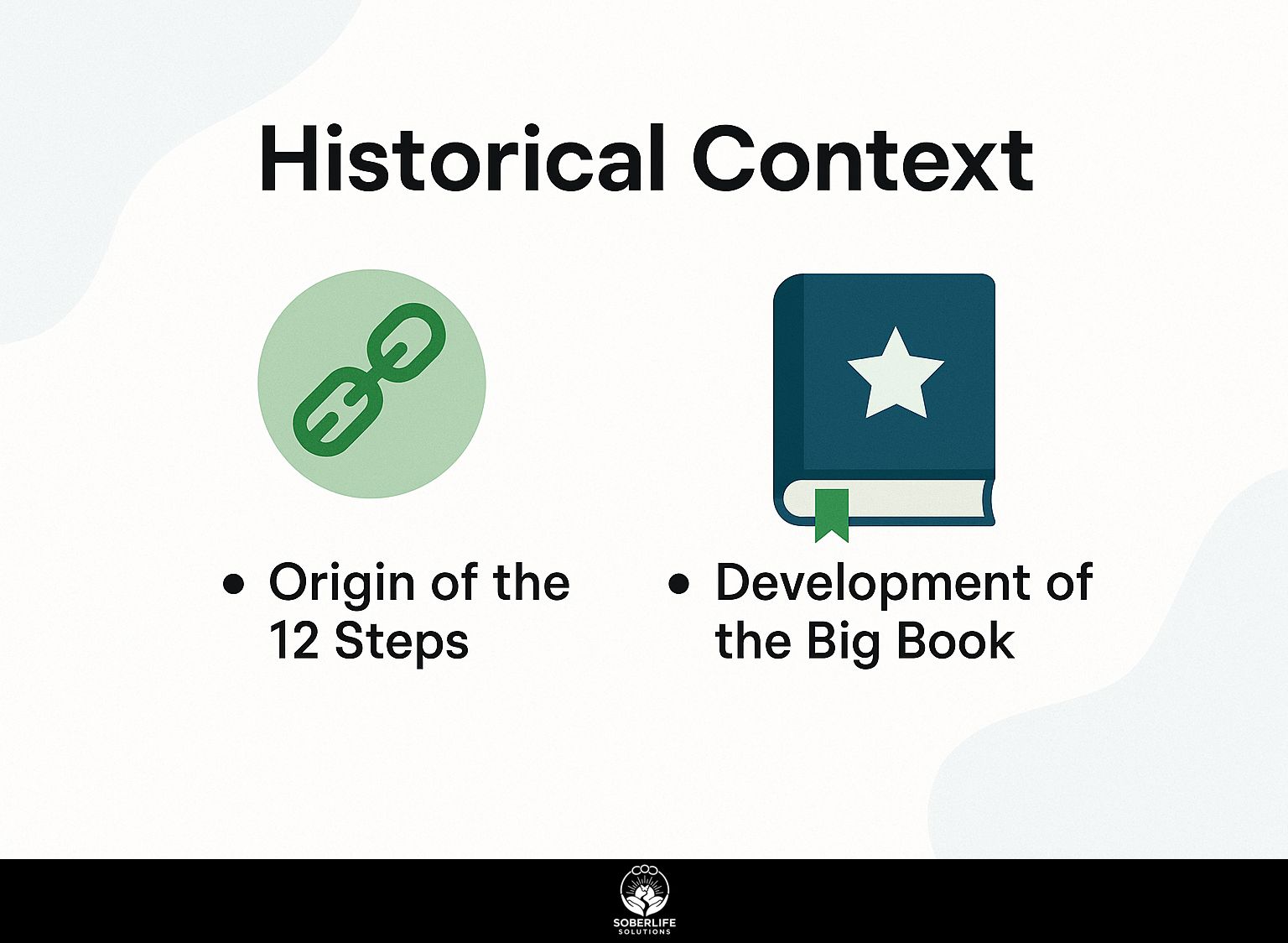
Learning about the history of the Twelve Steps and the Big Book shows the significant changes in A.A. led by its founders, Bill W and Dr. Bob Smith.
Origin of the 12 Steps
The Twelve Steps were initially inspired by the spiritual principles of the Oxford Group, aiming to guide individuals in overcoming addiction. For those interested in a comprehensive overview, this analysis by Medium provides valuable insight into the significance of the Oxford Group’s influence.
This group focused on personal change through self-reflection and responsibility, which early Alcoholics Anonymous (A.A.) members used to create an organized recovery method.
Significant figures like Bill Wilson and Dr. Bob Smith shaped these steps, integrating concepts such as humility and the importance of community support.
By emphasizing spiritual growth and building relationships with a higher power, they adjusted the original principles to address the specific challenges of addiction, creating a practical approach that has helped many individuals achieve recovery since it began. In a similar vein, exploring the global reach and support offered by Narcotics Anonymous can further illustrate the widespread impact of such community-driven recovery efforts.
Development of the Big Book
Published in 1939, the Big Book became the cornerstone of Alcoholics Anonymous, providing members with essential guidance and personal stories of recovery.
The Big Book is structured into two main parts: the first offers a detailed explanation of alcoholism as a disease, while the second is filled with personal narratives from individuals who have faced similar struggles.
This mix of real information and sincere personal stories makes a useful tool, building connections among members. Its effects are significant; many people find comfort and support in shared experiences, highlighting that they are not alone in their experiences.
The book remains important today, motivating and helping people who want to stop drinking. For expanded context, PBS NewsHour provides an insightful look at how the Big Book turned 75 and continues to offer hope through the 12 steps. Additionally, understanding the various meeting types within Alcoholics Anonymous can further enhance one’s recovery journey.
Structure of 12 Steps
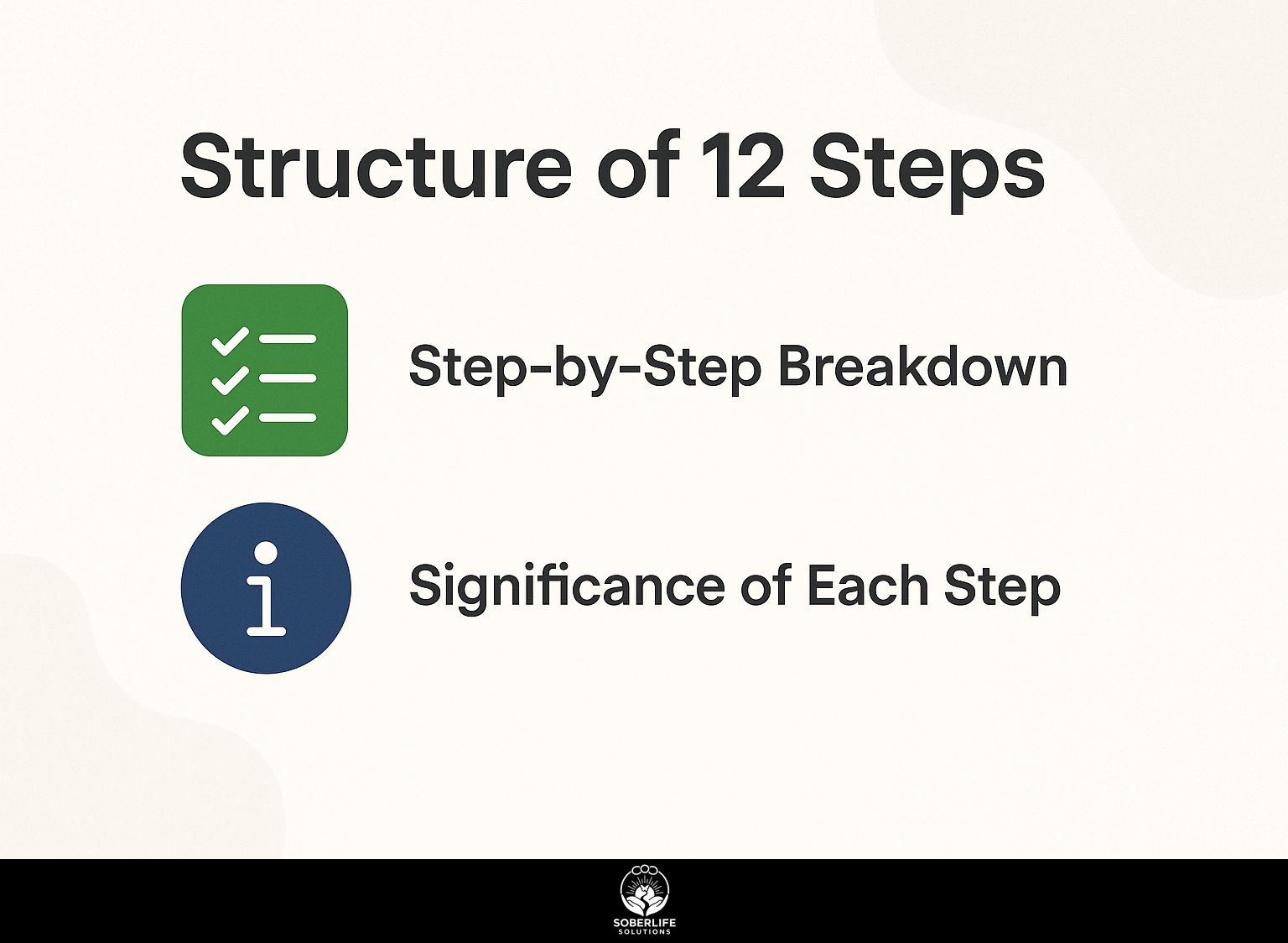
Dividing the Twelve Steps into smaller sections helps people grasp their meaning in the recovery process and why each step is important.
Step-by-Step Breakdown
Each of the Twelve Steps is designed for personal reflection, starting with admitting powerlessness over alcohol and leading to spiritual awakening.
The Twelve Steps guide individuals through a structured recovery process. The first step emphasizes admitting powerlessness, which lays the foundation for change.
- The next steps involve reflecting on what you’ve done, evaluating your actions, and saying sorry to those you’ve harmed.
- For example, after completing the fourth step (a moral inventory), individuals can list specific behaviors to address in their lives.
- Journaling can be a useful tool at this stage, offering clarity and helping track progress.
In the end, this process helps people find spiritual awareness, leading to continuous self-improvement and building relationships with others.
Significance of Each Step
Each of the Twelve Steps supports spiritual development and deepens the connection with a Higher Power.
Taking the First Step, for example, urges members to admit they can’t manage their alcohol use, encouraging honest reflection that leads to personal development. This statement is seen as life-changing because it sets the foundation for humility and letting go.
In the Third Step, deciding to give control of your will and life to a Higher Power builds trust, strengthening a supportive relationship that can lead to deep spiritual experiences. Members frequently share how these activities promote clarity and peace, contributing to a deeper sense of purpose and connection.
Role of Big Book in Recovery
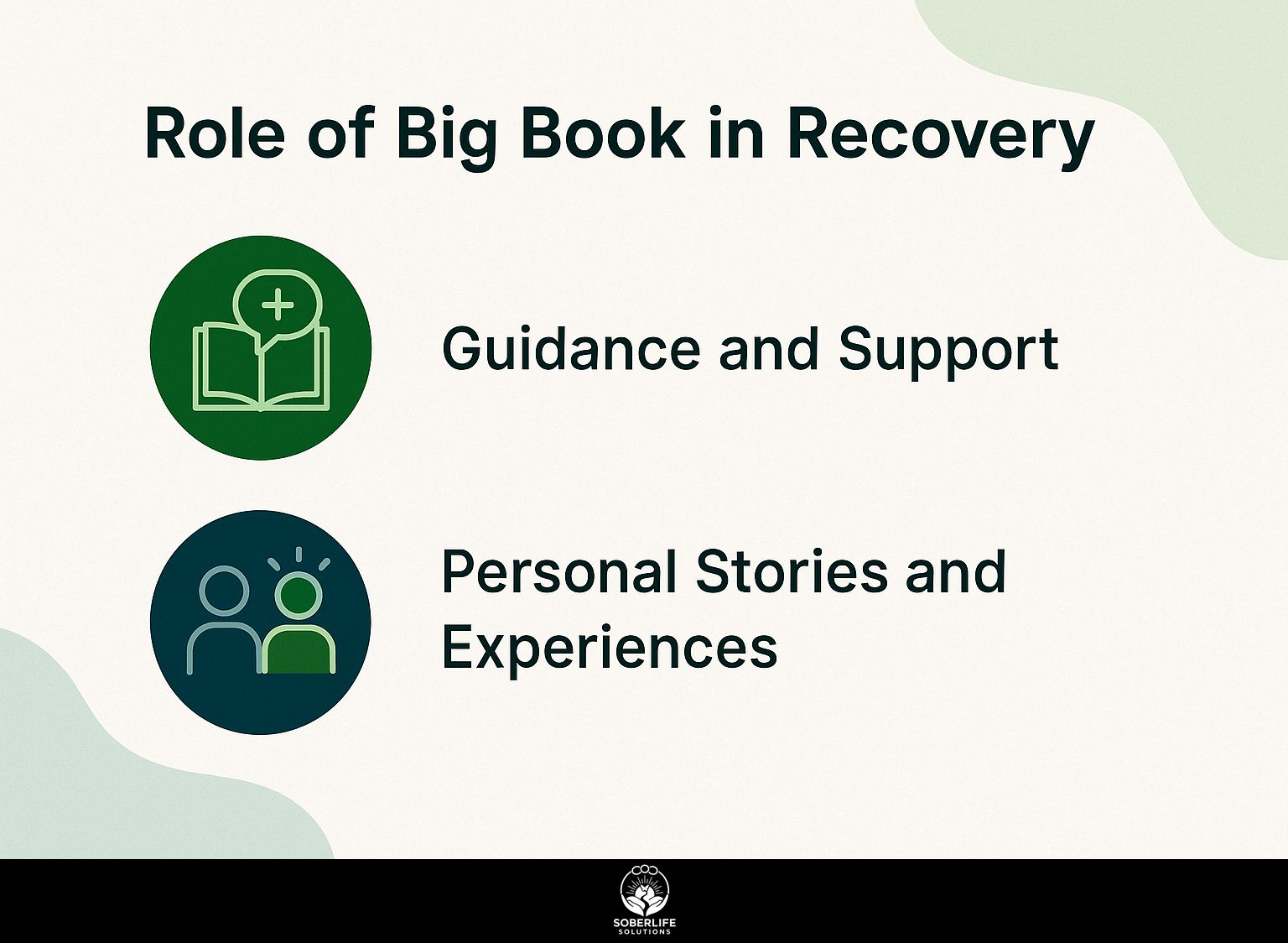
The Big Book is a guide for recovery and provides motivation through the personal stories of other A.A. members.
Guidance and Support
Books from Alcoholics Anonymous, especially the Big Book, provide detailed instructions that have successfully helped many people recover.
The Big Book outlines critical concepts like the 12 Steps and 12 Traditions, emphasizing personal accountability and community support.
For example, reading about the stories in Chapter 5 can encourage members to talk about their challenges and create a closer bond with others.
The practical exercises in Chapter 4 encourage self-reflection, helping individuals identify triggers.
Reading these materials together in group meetings helps everyone feel included, which increases their commitment to recovery and reduces feelings of isolation.
Personal Stories and Experiences
The personal stories shared in the Big Book embody the experience, strength, and hope that characterize the fellowship of Alcoholics Anonymous.
These narratives serve to create an emotional connection among members, allowing individuals to see their own struggles reflected in others’ experiences.
For example, a new member might connect strongly with a veteran’s story of relapse and recovery, finding comfort in shared struggles.
Using tools like group discussions or workshops centered around these stories can improve knowledge and teamwork.
Encouraging members to share their stories helps create a supportive place that focuses on togetherness and shared recovery, strengthening the basic ideas of the program.
Importance of Meetings
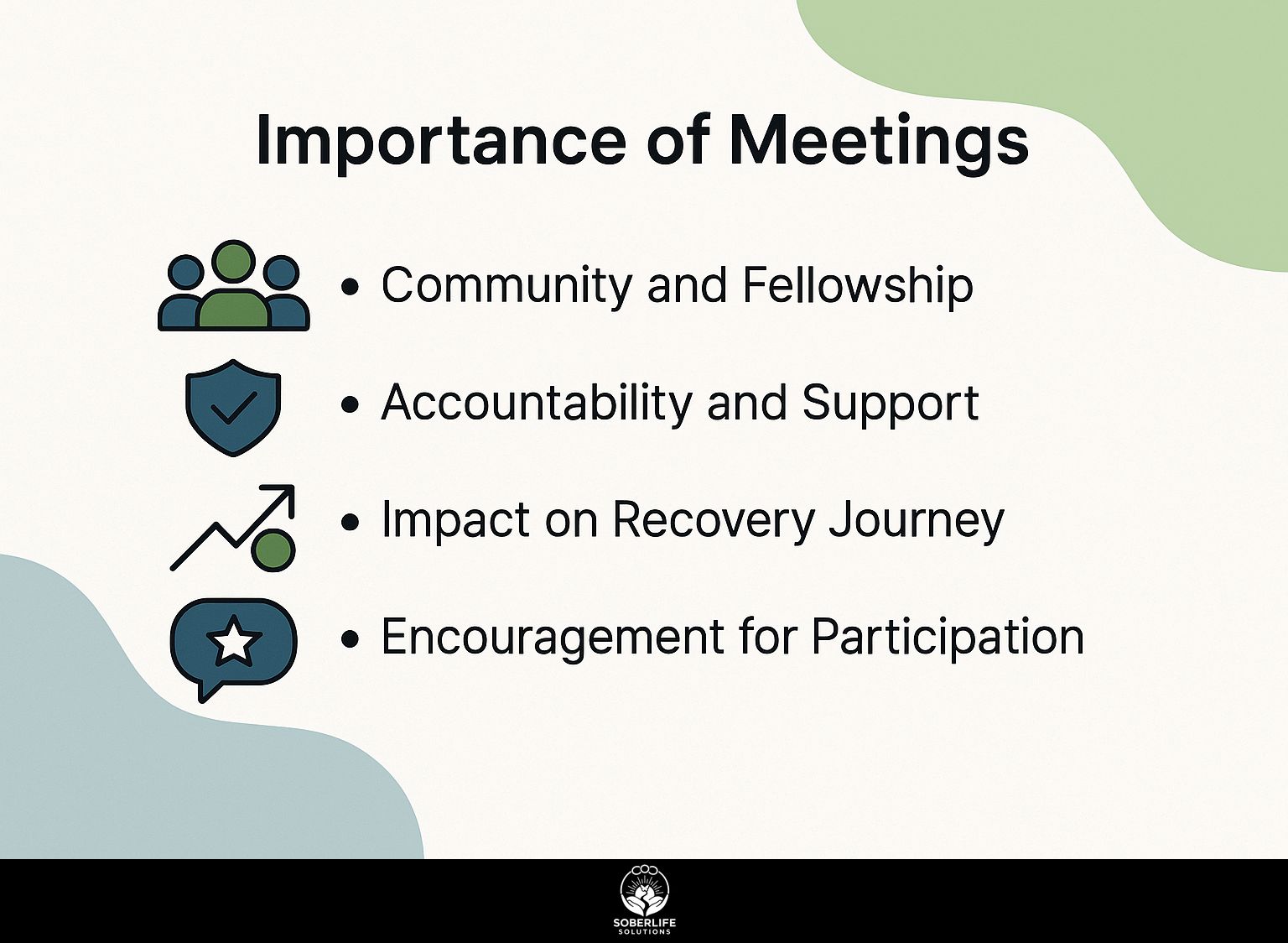
A.A. meetings are essential for creating connections and offering the responsibility needed for long-term recovery from alcoholism.
Community and Fellowship
Community and fellowship within A.A. meetings provide a safe space for individuals to share their struggles and triumphs in recovery.
These gatherings help build relationships that are important for healing. For example, a woman named Sarah felt relief in her local A.A. group, where she met each week with people who had similar experiences.
Treatment centers often host these meetings, creating accessible environments. They may provide resources like trained facilitators to guide discussions, further enhancing support.
Members share their stories of resilience, such as James, who credits his sobriety to the lasting friendships formed during these meetings. This sense of belonging significantly reinforces the recovery process. For a deeper understanding of why these meetings are essential, addressing challenges, and support, learn more here.
Accountability and Support
Tracking attendance in A.A. meetings helps members stay committed to their recovery process.
Regular group meetings serve as a powerful support system, encouraging members to share their experiences and progress.
For instance, many members find proof of attendance, which can be documented through meeting cards or signatures, beneficial for feeling connected and responsible.
The friendships made in these meetings encourage individuals to stay motivated. Members might pair up for accountability, checking in with each other weekly, which reinforces their commitment.
This organized help offers encouragement and helps people grow and become stronger during recovery.
Impact on Recovery Journey
The Twelve Steps help people make deep personal changes, leading to spiritual experiences that change the lives of those recovering from alcoholism.
Many individuals find that each step encourages introspection and accountability. For instance, Step Four, which involves creating a detailed list of one’s moral actions, has helped many people confront their past mistakes, leading to important realizations.
Likewise, Step Eleven focuses on prayer and meditation to build a stronger spiritual bond. Real-life stories showcase changes such as a person who overcame addiction by following these steps, leading to sobriety, better relationships, and progress in their career.
This process shows how the Twelve Steps provide a plan for complete change, helping people achieve a satisfying life without addiction.
Encouragement for Participation
Joining both open and closed A.A. meetings provides essential help for people trying to recover from alcoholism.
To find local A.A. meetings, start by visiting the A.A. website, which offers a meeting locator tool where you can input your zip code. Local hospitals and community centers often have information on nearby meetings.
Don’t hesitate to reach out to a trusted friend or counselor who may also know of resources. Once you locate a meeting, try going to both open and closed sessions to see how different groups work and handle recovery.
Each meeting can give you helpful information and help you build relationships that are important for your development.
Frequently Asked Questions
1. What are 12 Steps and Big Book Meetings?
12 Steps and Big Book Meetings are a form of support group meetings for individuals struggling with addiction. These meetings follow the 12-step program outlined in the Big Book of Alcoholics Anonymous.
2. What is the purpose of 12 Steps and Big Book Meetings?
The purpose of these meetings is to provide a safe and supportive environment for individuals who want to recover from addiction. They offer a structured program and a community of individuals who understand and can relate to the challenges of addiction recovery.
3. How often are 12 Steps and Big Book Meetings held?
The frequency of these meetings varies depending on the group, but they are typically held weekly or bi-weekly. Some groups may also offer daily meetings. It is recommended to attend these meetings regularly for best results.
4. Who can attend 12 Steps and Big Book Meetings?
These meetings are open to anyone who is struggling with addiction and wants to recover. They are also open to family members and loved ones of individuals dealing with addiction. The only requirement for attendance is a desire to stop using drugs or alcohol.
5. Are 12 Steps and Big Book Meetings religious in nature?
The 12-step program outlined in the Big Book does mention a higher power, but it is not specific to any particular religion. These meetings are open to individuals of all faiths and beliefs, and the emphasis is on personal growth and spiritual connection, rather than religious conversion.
6. How do 12 Steps and Big Book Meetings benefit individuals in recovery?
These meetings provide a supportive and non-judgmental community for individuals in recovery. They offer a safe space to share experiences and struggles, and receive encouragement and guidance from others who understand. The 12-step program also offers a structure for personal development and responsibility, which can support lasting sobriety.

